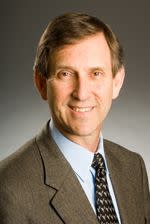 The Envoy
The EnvoyNew State stability ops shop aims for smarter U.S. response to emerging conflicts

With the world presenting many uncertain, and potentially violent conflicts to U.S. policy makers, the State Department is seeking to formalize its approach to conflict resolution abroad, with this formal launch this week of a new Bureau of Conflict and Stabilization Operations. Senior State Department officials told Yahoo News about this new initiative on Friday.
The new bureau—with a staff of almost 200 people--is tasked with providing the department more objective field analysis and more nimble policy recommendations for acting in complex and volatile security situations. Among the recent such challenges for U.S policy hands, State officials say, are the Syrian regime's brutal crackdown on anti-government unrest; and the ongoing crisis in sub-Saharan Africa, where weak states, poverty, and drought have fueled conflict and famine, while also furnishing refuge for terrorist groups.
The new operation marks a departure of sorts from the guiding doctrine at State over the past few years--the mobilization of a "civilian surge" of personnel to do peace-building work in Iraq and Afghanistan alongside their combat-armed military counterparts. By contrast, watchword at the new Bureau of Conflict and Stabilization Operations (CSO) might best be summed up as "less is more--at least sometimes."
"Sometimes introducing more Americans is not the best thing to do—it is trouble security wise," a senior State Department official involved with the new bureau told Yahoo News Friday on condition of anonymity. "You have got to look at . . . if it would really be helpful. In places like Syria or even north Nigeria, what should we do that would be most effective?"
"At the top of the list, we have to achieve in these places greater coherence" of American policy efforts, the official continued. The American government tends to launch programs in places that expand rapidly--and expensively--without necessarily getting the desired results. "It's a very common weakness, that [the U.S. government keeps] repeating . . . .It's a chronic problem."
If policy officials don't start with smart, objective, locally driven analysis, "you end up with multiple strategies and hundreds of initiatives and a 'deliverables' mentality," he said. "You've got to constantly ask the question, 'what do we really need?'"
What we're "really looking for," he continued, "is a bureau that will force and drive that conversation."
"If we start with solid analysis informed by local realities, we can better target our responses while leveraging fewer resources," Under Secretary of State for Democracy and Global Affairs Maria Otero told Yahoo News in an emailed statement Sunday. "It's about being anticipatory and strategic."
The acting, de facto chief of the new bureau is Ambassador Rick Barton, who was until recently a deputy U.S. ambassador to the United Nations and former deputy UN High Commissioner for Refugees. More recently, Barton has served as Secretary of State Hillary Clinton's senior adviser on conflict and stabilization operations. (The White House is expected to formally nominate Barton as assistant secretary of the new bureau in the coming weeks.) Karin von Hippel, a veteran former UN field official currently working with Barton on the transition plan for the new bureau, is expected to be named one of four deputy assistant secretaries for the bureau, dealing with operations, State officials said.
Still, at least one key member of Congress--House Foreign Affairs Committee chairman Rep. Ileana Ros-Lehtinen (R-Fla.)--is said to not yet be sold on the idea. According to some foreign-policy sources, the lawmaker isn't so much at odds with the bureau's aims as cool to further expansion of the bureaucracy. Supporters counter the bureau will drive efficiencies. Meantime, they note, the CSO only formally institutionalizes a more ad hoc State Department shop--the office of the coordinator for stabilization and reconstruction, now headed by Amb. Robert Loftis. The new arrangement would seemingly provide Congress with greater oversight powers over the entity's work--as opposed to the present scramble to stay abreast of the work of various State Department 'czars' and special advisers not usually required to undergo the travails of the Senate confirmation process.
In addition, CSO backers note that its staff—roughly 40 foreign service officers, 90 civil service officers and 70 contractors--draws largely on personnel already on the department payroll. And bureau aides say they expect the organization's staff numbers to shrink some in the future.
"We will be a field-driven organization, not Washington heavy," while still possessing the "liquidity to initiate an idea," the State official said.
The blueprint for the creation of the new CSO bureau was laid out in the so-called Quadrennial Diplomacy and Development Review (QDDR), a State Department four year vision/planning guide, which was released last year.
Other popular Yahoo! News stories:
• Dear Col. Gadhafi: How an ex-CIA Arabist, ex-RNC fundraiser, and lobbyist offered to aide Libyan dictator for $10 million
• Obama to send Clinton to Myanmar as progress noted in Burmese political reforms
• Romney, Gingrich statistically tied in New Hampshire
Want more of our best national security stories? Visit The Envoy or connect with us on Facebook and on Twitter.
